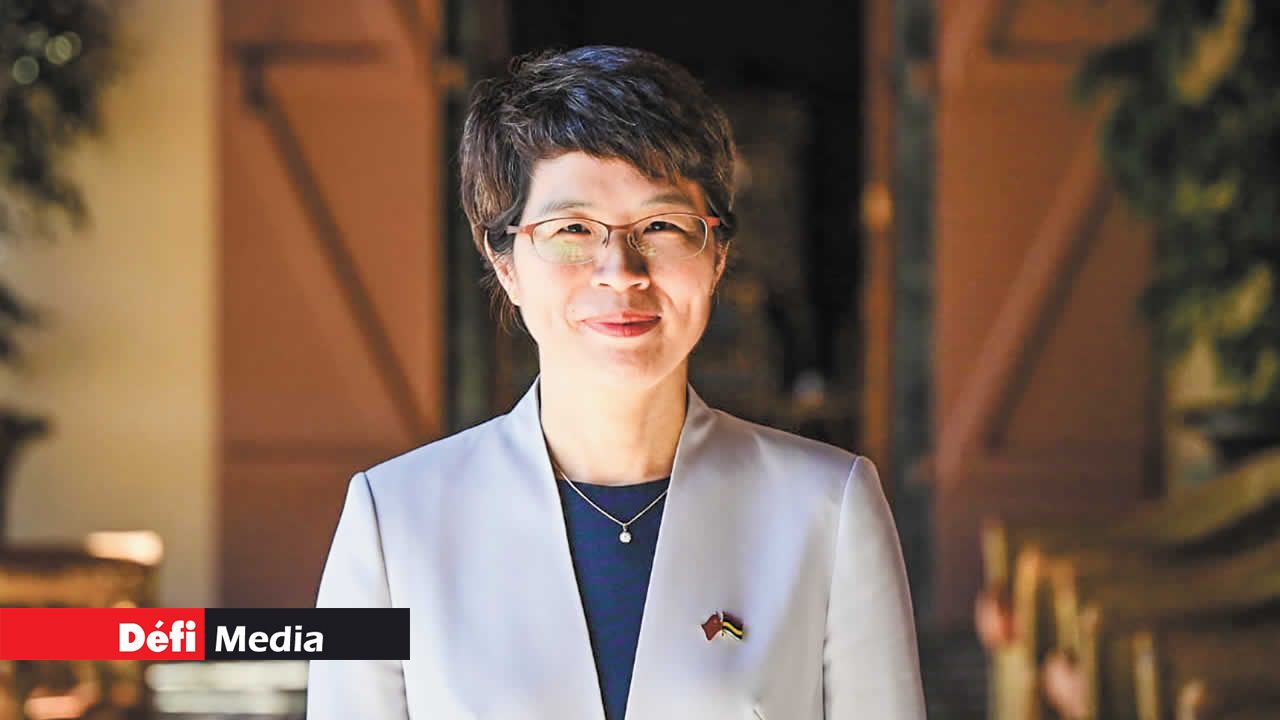
By H.E. Dr. HUANG Shifang, Ambassador of the People’s Republic of China to the Republic of Mauritius
This year marks the 80th anniversary of the victory of the World Anti-Fascist War and the founding of the United Nations. In this special historical year of taking stock of the past and envisioning the future, Chinese President Xi Jinping solemnly proposed the Global Governance Initiative (GGI) during the 2025 Shanghai Cooperation Organization (SCO) Tianjin Summit. The GGI, with sovereign equality, international rule of law, multilateralism, peoplecentered approach and real results at its core, showcases China’s wisdom and solution to strengthen and improve global governance.
The current international landscape is undergoing changes and turbulence with frequent regional turmoil, impeded economic development, backlash against globalization, gaps in rules and rule of law, and an intensifying deficit in governance. Against this backdrop, the questions of what kind of global governance system to build and how to reform and improve the global governance system have increasingly become major topics of high concern to the international community. President Xi Jinping’s proposal of the GGI is both timely and crucial, responding to the common aspirations of people in all countries and meeting the urgent needs of the world today, and has been welcomed and supported by the international community. The Global Governance Initiative, together with the Global Development Initiative, the Global Security Initiative, and the Global Civilization Initiative, constitutes the four major global initiatives proposed by China. Each of the four initiatives has its own focus, yet they are mutually reinforcing, addressing development, security, civilization, and governance, respectively. Together, they inject stability and certainty into a turbulent world, charting the course for a community with a shared future for mankind.
Staying committed to sovereign equality. This is the foremost premise of global governance. All countries, regardless of size, strength or wealth, shall have their sovereignty and dignity respected, their domestic affairs free from external interference, the right to independently choose their social system and development path, and the right to participate in, make decisions in and benefit from the global governance process as equals. Greater democracy should be promoted in international relations to make the global governance system better reflect the interests and aspirations of the majority of countries and to increase the representation and say of developing countries.
Staying committed to international rule of law. This is the fundamental safeguard for global governance. The purposes and principles of the U.N. Charter are universally recognized basic norms of international relations. They must be upheld unwaveringly. The authority and solemnity of international law must be upheld. Major countries, in particular, must take the lead in advocating and defending international rule of law.
Staying committed to multilateralism. This is the basic pathway of global governance. The principle of extensive consultation and joint contribution for shared benefit must be upheld. Global affairs should be decided by all, the governance system built by all, and the fruits of governance shared by all. Practice of unilateralism must be rejected. The U.N. is the core platform for practicing multilateralism and advancing global governance, whose role must be enhanced, not weakened.
Staying committed to the people-centered approach. This is the underpinning value of global governance. The global governance system must seek improvement through reforms in order to inspire, among peoples of all countries, a greater sense of fulfillment through accelerated common development, a greater sense of safety through more effective response to humanity’s common challenges and a greater sense of well-being through advancing the common interests of different countries and communities.
Staying committed to real results. This is an important principle of global governance. Effective global governance is essentially one that resolves real problems. Given the close links among various issues, global governance should be carried out in a more coordinated, systematic and holistic way. Developed countries should earnestly take on their responsibilities and provide more resources and public goods. Developing countries, on their part, should pull together for strength and do their best for the world.
Development and governance are profound issues of our time faced by the international community, and justice and equity are the shared expectations of the vast majority of countries in reforming the global governance system. As a member of Indian Ocean island developing states, Mauritius has been an active advocate of the international system with the U.N. at its core, and the international order underpinned by international law. It firmly supports multilateralism and speaks up for developing countries on the international stage. In today’s complex international landscape, both China and Mauritius are confronted with multiple challenges such as hegemonism, unilateralism, and trade protectionism. These issues, to some extent, stem from deficiencies in the present global governance system and the insufficient voice and representation of developing countries.
To tackle these challenges, China has not only proposed four major global initiatives and the vision of building a community with a shared future for humanity, but has also implemented these ideas in practice through cooperative platforms and policies such as the Belt and Road Initiative (BRI) and zero-tariff arrangements for African countries, which have helped African countries advance governance through development. As good friends and partners with shared visions and mutual respect, China firmly supports Mauritius in safeguarding its sovereignty and upholding its legitimate development interests. We look forward to deepening practical cooperation across various fields with Mauritius, enhancing policy coordination and experience sharing, and jointly implementing the GGI to contribute wisdom and strength to building a more just and equitable global governance system.
 J'aime
J'aime














